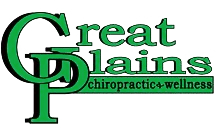
Over the hill at age 65? Ready for the rocker at 70? Not these days. Americans are living longer and making more of their later years. One key is exercise.
"Perhaps the most debilitating influence in people’s health as they age is a sedentary life," said Dr. Richard Brassard, president of the American Chiropractic Association (ACA). "Exercise of some type is all but mandatory."
Otherwise, an individual may set him or herself up for broken bones, circulation problems caused by atrophying blood vessels, and a myriad of other physical problems associated with aging.
"Exercise, however, can improve a person’s mobility, digestive processes and circulation. It can also reduce anxiety. Add proper nutrition and you have the makings of a naturally healthy lifestyle," said Dr. Brassard. "Following a healthy diet is another way of extending your golden years as long as possible."
Dr. Brassard and the ACA suggest the following tips to help seniors maintain a healthy lifestyle:
Walking
- Walking improves elasticity in blood vessels, which makes them less susceptible to formation of aneurysms or rupture.
- Start with one-third of a mile per day – one-sixth out and one-sixth back. (Measure the distance with your car.) Do that three days a week for a month, then double the distance, working gradually up to at least one mile a day, three days a week.
- Expect a little soreness in the thighs and calves for the first week or two. If you experience more than soreness, check with your chiropractor.
Stretching
- The average person should stretch to prevent the bowing or stoop caused by shortening of ligaments. A stoop can inhibit normal breathing.
- Stretch the groin muscles by sitting on the floor and bending one leg to the side and back as far as possible. Or sit Indian fashion on a cushion and watch television. A relaxed stretch is the goal.
- Stretch the back leg muscles by putting your hands on a wall, one foot flat on the floor behind you. Then lean into the wall. Or stand up straight and bend over. Or sit with one foot on an ottoman and bend forward.
Eating Right
- Make sure you have a properly balanced diet. If you take vitamins, take them with a meal. Drink 10 eight-ounce glasses of water a day to help keep the kidneys active, dilute and remove toxins from the body, and replace lost fluids. (Coffee, tea, soft drinks and alcohol are diuretics. Don’t substitute them for water.)
Dr. Brassard suggests seeing your chiropractor regularly as well. "He or she has the expertise to help keep you in the mainstream of life."
For Your Health,
Dr. Mark Hardwick and Dr. Mitchell Jacobs
